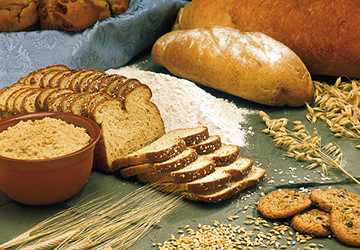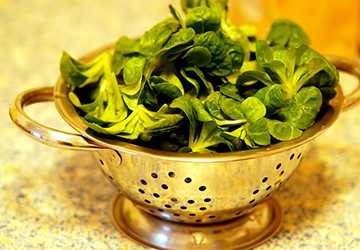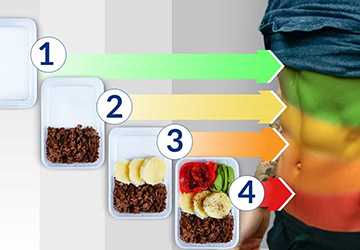Health Foods That Can Improve Your Mood
Have you ever noticed how your mood changes after eating certain foods? For example, you might feel sluggish and tired after eating a big meal, while you might feel energized and refreshed after eating a healthy salad. This is because our food affects our brain chemistry, mood, and energy levels.
Fortunately, there is a way to improve your mood through food. We examine how nutrition affects your mental health for you. In this blog, we discuss which foods can boost your mood.

The link between diet and mental health
Mental health is one of the most critical aspects of our health, affecting how we think and behave and our ability to manage stress, interact with people, and make good decisions. Mental illness is widespread and can affect anyone, regardless of age, gender, culture, or socioeconomic status. According to the World Health Organization (WHO), mental illness causes 1 in every five years of disability worldwide today.
However, research shows that healthy eating has an impact on mental health. Therefore, nutrition is essential to your physical and psychological health.
Good nutritional choices lead to a healthy body and mind because the body absorbs the essential nutrients it needs to perform its daily tasks. While the reasons for how particular diets affect mood are unclear, it is clear that unhealthy eating habits ultimately increase the risk of anxiety and depression.
Mood-Boosting Foods
Many people fall into the habit of eating processed foods. These are readily available in the market and will be less expensive. But convenience comes at a price: low nutritional value.
A diet rich in whole foods such as whole grains, lean protein, fruits, and vegetables can positively impact mental health. These foods are rich in nutrients critical to brain function, such as vitamins, minerals, and antioxidants. They also provide a steady energy source, help change the mood from negative to positive, and prevent mood swings.
Here are some foods that may improve mood and energy:
Dark chocolate
Rich in flavonoid antioxidants, dark chocolate contains phenylethylamine, which may help improve mood. It also contains small amounts of caffeine and theobromine, which may help improve mood and increase energy levels.
Fat fish
The best oily fish are rich in omega-3 fatty acids, including salmon, tuna, and mackerel. Omega-3 fatty acids have shown the ability to improve mood and reduce symptoms of depression. Omega-3 fatty acids may also improve brain function and cognition, especially in older adults. Finally, these fish are good sources of vitamin D, which helps fight depression while boosting calcium levels for healthy bones.
Nuts and seeds
Nuts and seeds contain moderate amounts of protein, fat, and fiber, all necessary to stabilize blood sugar levels and keep your body active. They are also crucial for maintaining a healthy gut.
Leafy vegetables
Green leafy vegetables rich in minerals and vitamins include spinach, kale, and broccoli. It's one of the best foods for improving mood, energy, and brain function. They also contain a compound called folic acid, which may reduce symptoms of depression.

Whole wheat
Whole grains like brown rice, quinoa, beets, and oats are high in fiber, which aids digestion. They also contain complex carbohydrates that last longer than the common sugars found in commercial foods. Therefore, these foods provide your body with a steady source of energy. Most importantly, regular consumption of these foods also provides your body with adequate vitamins and minerals.
Lean protein
Lean protein is a high-energy food for an active lifestyle. Chicken, meat, fish, eggs, soybeans, and lentils are good sources of protein and amino acids.
Tips for Incorporating Refreshing Foods into Your Diet
Ensure a balanced diet
Mix your diet with these foods. Eating a balanced diet of essential food groups ensures your body gets various healthy nutrients.
Plan your meals
The best way to ensure you include mood-boosting foods in your diet is to plan your meals ahead of time. This will ensure you have all the necessary ingredients and help you avoid impulse-buying unhealthy snacks and meals.
Try new recipes
Healthy food doesn't have to be boring! Experiment with new recipes using mood-boosting ingredients like salmon, quinoa, and dark leafy greens. This helps keep your meal fun and satisfying.
Start small and make changes incrementally
If you're not used to eating a lot of healthy food, making many changes at once can be overwhelming. Instead, start small and fine-tune your diet over time. For example, replace unhealthy snacks with a piece of fruit or a handful of nuts daily.
Keep healthy snacks close at hand
Unhealthy snacks like candy bars and chips are within easy reach when you're on the go or on the go. Keep healthy snacks, such as chopped vegetables, fruits, and nuts, to avoid this. This can help you stay full between meals and avoid unhealthy snacks.
Enough to drink
Staying hydrated is essential to staying healthy. Staying hydrated by drinking water regularly can help, and water helps your body mobilize crucial nutrients when they need it. Dehydration can lead to headaches, unwanted hunger, dizziness, and other symptoms that can negatively affect your emotional and physical health, which is true even with deficient levels of dehydration.
Remember, sugary drinks and alcohol are not sources of fluids. Consuming them in large quantities can do more harm than good. Avoid adding these items to your diet.
Diploma!
In conclusion, the impact of healthy eating on mental health cannot be overemphasized. Including nutrient-dense and energy-dense foods in your diet can improve your mood, boost your energy levels, and support your mental health. This will help avoid unhealthy eating habits, such as consuming many processed foods and drinks. Now that you know which foods boost your mood, grab a healthy snack the next time you're feeling down and see how it affects your mood and energy levels.







